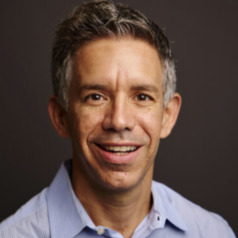
Patrick Abouchalache
Lecturer in Strategy and Innovation, Boston University
Patrick Abouchalache is a lecturer in Strategy and Innovation and Family Business at Boston University's Questrom School of Business, and founded The PEGA Group, a Boston- and New York-based operating, investment and advisory firm.
Less ![]()
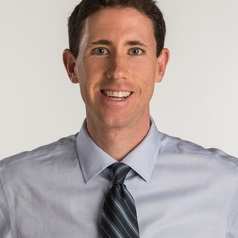
Patrick Barry
Clinical Assistant Professor and Director of Digital Academic Initiatives (University of Michigan Law School) | Visiting Lecturer (University of Chicago Law School) | Visiting Lecturer (UCLA School of Law), University of Michigan
Patrick Barry is a clinical assistant professor of law and the director of digital academic initiatives at the University of Michigan Law School and a visiting lecturer at the University of Chicago Law School and the UCLA School of Law. His teaching and research focus on creating a new vocabulary to talk about advocacy, especially in the age of artificial intelligence.
Among his teaching awards are the Wayne Booth Prize for Excellence in Teaching, the Provost’s Innovation in Teaching Prize, and the Outstanding Research Mentor Award. In addition, he was recently selected as a faculty fellow by the Office of Diversity, Equity, and Inclusion’s Center for Educational Outreach and a Public Engagement Fellow by the Center for Academic Innovation.
An All-American soccer player in college, Barry focused on the theatrical aspects of Supreme Court confirmation hearings as a PhD student in English at the University of Michigan. During that time, he also worked with other Michigan faculty to create Clinnect, a global network of legal clinics devoted to combating human trafficking.
Barry is the author of ten books—including Good with Words: Writing and Editing, Good with Words: Speaking and Presenting, Feedback Loops: How to Give and Receive High-Quality Feedback, and The Syntax of Sports. He has also created several online courses for the educational platforms Coursera and Michigan Online and regularly collaborates with the Human Trafficking Clinic, the Child Welfare Appellate Clinic, and the Social Enterprise Clinic, as well as with various law firms, government agencies, and nonprofit organizations. He is a member of the California Bar.
Less ![]()
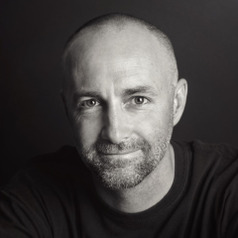
Patrick Bixby
Associate Professor of English, Arizona State University
Patrick Bixby (he/him/his) is an associate professor of English in the New College of Interdisciplinary Arts and Sciences at Arizona State University.
After earning a BA in psychology from the University of California, Los Angeles and a MA in English from California State University, Long Beach, Bixby completed his PhD in English at Emory University in 2003. He served as visiting assistant professor of literature at Claremont McKenna College for one year and then joined the faculty of ASU’s New College, where he has held a number of posts. In 2017, after directing several graduate programs and then serving as director of graduate studies for the college, he took a role building partnerships between the university and Arizona tribal communities, as well as other universities around the globe. Most recently, in 2021, he became the program lead for the BA in Disability Studies. In addition to these duties, he currently serves as vice president of the Samuel Beckett Society and resident director of the USAC summer school program at NUI Galway.
Bixby's scholarly interests span a variety of fields, including Irish studies, modernist studies, postcolonial theory and criticism, Continental philosophy, and issues of travel, mobility, and the body. He teaches courses in these fields and in the history of the novel, the history of film, the history of literary criticism, twentieth-century thought, postmodernism, and methods of interdisciplinary research.
His essays have appeared in journals such as Modernism/Modernity, Modernist Cultures, Irish Studies Review, and the Journal of Beckett Studies, as well as in collections such as A History of Irish Modernism (Cambridge UP, 2019), A History of the Modernist Novel (Cambridge UP, 2015), Beckett in Context (Cambridge UP, 2013), and Beckett and Ireland (Cambridge UP, 2010).
Bixby's latest book, License to Travel: A Cultural History of the Passport (U of California P, 2022), investigates the unyielding paradox of the document: even as it promises independence and mobility, escape and safe haven, the passport also serves as an essential tool of government surveillance and state power, purportedly assuring homeland security and the controlled movement of individuals across national boundaries. The study investigates this paradox by drawing on a range of sources, including literary history and modern art, archival documents and contemporary journalism, international law and theories of cosmopolitanism.
Less ![]()
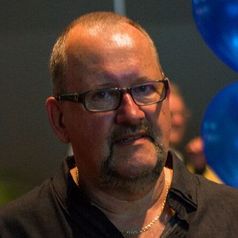
Patrick D. Nunn
Professor of Geography, Sustainability Research Centre, University of the Sunshine Coast
After 30 years of research, mostly focused in the Asia-Pacific region, Professor Nunn has accumulated a degree of expertise in a number of different fields. His primary field is geography, once largely physical in focus, but now straddling various aspects of sustainability. Professor Nunn has worked for a number of years in climate change, mostly on sea level and on the challenges of effective adaptation in poorer countries. He has also worked on archaeological topics, usually through the lens of palaeoenvironment reconstruction, but also applying his geological training to ceramic mineralogy and radiocarbon chronology. Since 2000, when a coup in Fiji interrupted a planned research programme, Professor Nunn became interested in myths as potential sources of information about geological hazards, particularly earthquakes and tsunamis, volcanic eruptions and abrupt coastal change.
Less ![]()
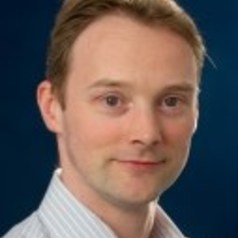
Patrick Degenaar
Reader in Neuroprosthesis, Newcastle University
I am a reader in biomedical engineering and came to Newcastle in 2010 to develop world class collaborations between the school of EEE and the Institute of Neuroscience. I have a BSc (1st class) and MRes in applied physics from Liverpool University, and a PhD in bioimaging from the Japan Advanced Institute for Science and Technology. After some time in the software industry, I did two post-doctoral projects at Imperial College before getting an RCUK fellowship in 2005. From 2005-2010 I was a lecturer and then senior lecturer in Imperial College, before coming to Newcastle. In my time I have had numerous research awards and published numerous papers in the key journals in the biomedical field.
At the heart of these efforts is my pioneering use of CMOS-micro-LED optoelectronics in combination with optogenetic gene therapy solutions. These will lead to highly advanced forms of prosthetic intervention not previously possible. This has led to a number of highly cited papers in key biomedical engineering journals. Furthermore I have explored impact through patient trials and commercial translation.
To achieve my aims I have been part of a number of large research consortia. Between 2010-2014 I coordinated the FP7 OptoNeuro project. More recently I am the engineering team leader on the £10M CANDO project to develop a next-generation prosthesis for epilepsy. Currently I have a large highly dedicated team of RAs, and PhD students.
Less ![]()
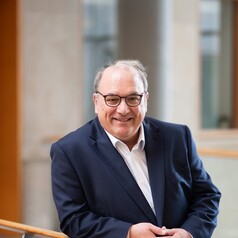
Patrick Fafard
Full Professor, Faculties of Social Sciences and Medicine; Senior Investigator, Global Strategy Lab, L’Université d’Ottawa/University of Ottawa
Before returning to academe Patrick Fafard served as a senior executive in the Governments of Canada and Saskatchewan. He is the author, co-author and editor of numerous publications on public health governance, public health policy, and the intersection of political science and public health. Patrick’s current teaching and research includes the public administration of public health, building the political science of public health, and global health governance to address the challenge of antimicrobial resistance. Patrick also serves in leadership roles for the Global Strategy Lab at York University and the University of Ottawa and for the Centre for Health Law, Policy and Ethics at the University of Ottawa.
Less ![]()
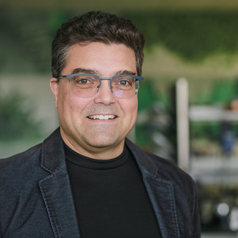
Patrick Faubert
Professor - Industrial ecology and climate change mitigation, Université du Québec à Chicoutimi (UQAC)
Industrial ecology; climate change mitigation; sustainable development; circular economy; greenhouse gas management; soil-atmosphere gas exchanges; biogenic volatile organic compounds
Less ![]()
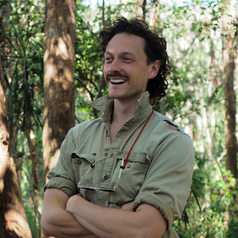
Patrick Finnerty
PhD candidate - Behavioural Ecology and Conservation Research, University of Sydney
I am a PhD student from the University of Sydney, School of Life and Environmental Sciences (SOLES) studying how we can strategically exploit plant odours to manipulate wild mammalian herbivore foraging behaviour as a conservation and wildlife management tool.
Less ![]()
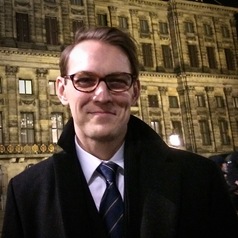
Patrick Flanery
Chair in Creative Writing, University of Adelaide
Patrick Flanery is Chair in Creative Writing at the University of Adelaide. Prior to joining Adelaide, he was Professor at the University of Reading, and subsequently Professor and Director of Creative Writing at Queen Mary University of London. He is the author of the novels 'Night for Day' (2019), 'I Am No One' (2016), 'Fallen Land' (2013) and 'Absolution' (2012), which was shortlisted for the International IMPAC Dublin Literary Award and the Royal Society of Literature’s Ondaatje Prize, among others. In 2019 he published a volume of creative nonfiction, 'The Ginger Child: On Family, Loss and Adoption'. His creative and critical work has appeared in 'Granta', 'Zoetrope: All Story', 'The Hopkins Review', 'The Times Literary Supplement', 'The Washington Post', 'The Guardian', 'The Los Angeles Times', and 'The Spectator', among others. He has held fellowships at MacDowell, the Rockefeller Foundation’s Bellagio Center, the Santa Maddalena Foundation, and the Stellenbosch Institute for Advanced Study.
Less ![]()

Patrick G. Watson
I am the principal investigator of three SSHRC-funded projects studying policing and police oversight. I am currently writing a book based on the first of these projects, a study of eight criminal trials in Canada and the United States where police officers were tried for on-duty shooting incidents and where video evidence played a key role in the trial. My current studies are of special investigations units decisions of officer "reasonablenss" for cases that do not proceed to trial. I am the first Canadian scholar to be the successful principal applicant of the SSHRC/DFG/ESRC/ARN Open Research Area grant (2022 competition).
Less ![]()
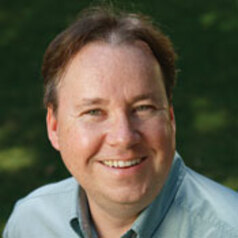
Patrick James
Dornsife Dean’s Professor of International Relations, USC Dornsife College of Letters, Arts and Sciences
Patrick James is is Dornsife Dean’s Professor of International Relations at the University of Southern California (PhD, University of Maryland, College Park). James specializes in comparative and international politics. His interests at the international level include the causes, processes and consequences of conflict, crisis and war. With regard to domestic politics, his interests focus on Canada, most notably with respect to the constitutional dilemma. James is the author or editor of 30 books and over 150 articles and book chapters. Among his honors and awards are the Louise Dyer Peace Fellowship from the Hoover Institution at Stanford University, the Milton R. Merrill Chair from Political Science at Utah State University, Lady Davis Professorship of the Hebrew University of Jerusalem, Thomas Enders Professorship in Canadian Studies at the University of Calgary, Senior Scholar award from the Canadian Embassy, Washington, DC, Eaton Lectureship at Queen’s University in Belfast, Quincy Wright Scholar Award from the International Studies Association (ISA) (Midwest), Beijing Foreign Studies University Eminent Scholar, Eccles Professor of the British Library and Ole R. Holsti Distinguished Scholar of the ISA (West). He is a past president of the ISA (Midwest) and the Iowa Conference of Political Scientists. James has been Distinguished Scholar in Foreign Policy Analysis for the ISA, 2006-07, and Distinguished Scholar in Ethnicity, Nationalism and Migration for ISA, 2009-10. He served as President, 2007-09, of the Association for Canadian Studies in the United States, President of the International Council for Canadian Studies, 2011-13, President of the Peace Science Society, 2016-17, and President of the International Studies Association, 2018-19. James also served a five-year term as Editor of International Studies Quarterly.
Less ![]()
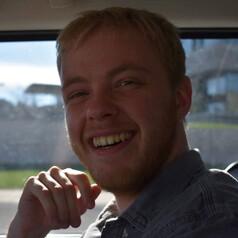
Patrick Kinghan
PhD Candidate, Faculty of Education and Research Assistant, Western University
I am currently in the first year of my PhD at the Faculty of Education at Western University. I am studying the experiences of Black students at Canadian universities using oral history interviews with Black alumni--research I have continued over from my Master's degree. My MA and Bachelor's Degrees are both in history with a focus on Black history and public history. Between my MA and my PhD I worked in several public history positions including as an archivist for the London Black History Coordinating Committee and a researcher for a children's TV show called Xavier Riddle and the Secret Museum.
Less ![]()
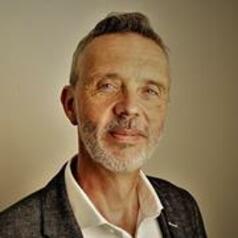
Patrick Leman
Pro-Vice Chancellor, Professor of Psychology, University of Waikato
I am a developmental social psychologist, My research explores how social relationships and wider social context influences children's and adolescents' understanding of themselves and others, and their acquisition of knowledge. I have active research interests also in the arts and psychology, mental health, and adults' epistemological understanding.
Less ![]()
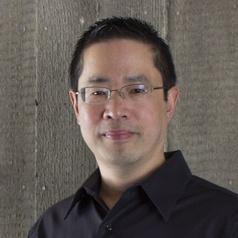
Patrick Lin
Professor of Philosophy, California Polytechnic State University
Patrick Lin, PhD, is the director of the Ethics + Emerging Sciences Group at Cal Poly, where he is a philosophy professor. He also serves on the US National Space Council’s Users’ Advisory Group (UAG) and is affiliated with Stanford Law School, Czech Academy of Sciences, World Economic Forum, Aurelia Institute, For All Moonkind, AIAA, and others. Previous affiliations include Stanford Engineering, US Naval Academy, Dartmouth, Univ. of Iceland (Fulbright specialist), Center for a New American Security, New America Foundation, UNIDIR, 100 Year Study on AI, and more. Prof. Lin is well published in technology ethics, incl. cyber, space development, AI, robotics, military systems, bioengineering, materials science, and more.
More details here: https://philosophy.calpoly.edu/faculty/patrick-lin
Less ![]()
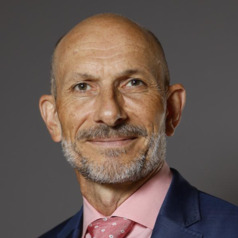
Patrick Louchouarn
Professor of Earth Sciences, The Ohio State University
Dr. Louchouarn joined The Ohio State University in 2022 as the senior vice provost for faculty. In this position, he leads the inaugural Office of Faculty Affairs at Ohio State. He is also a professor at the School of Earth Sciences. His multidisciplinary research focuses on understanding the impacts of environmental perturbations on biogeochemical cycling at ecosystem interfaces and addressing capacity building in earth and environmental education in diverse communities. The orientation of his research in biogeochemistry deals with: the identification of fire markers and combustion byproducts in complex environmental mixtures and their application to reconstructions of fire/combustion history, and natural and human-induced fluctuations in material fluxes within watersheds. In parallel, to address issues of learning and thinking in the environmental sciences, Dr. Louchouarn incorporates this research into inquiry-based educational models that question how people learn and make decisions on environmental issues.
Less ![]()
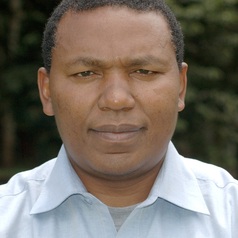
Patrick Maundu
Ethnobotanist, National Museums of Kenya
Patrick is an ethnobotanist interested in traditional uses of African biodiversity, and especially in food and nutrition. He works for the National Museums of Kenya. His research interests are: ethnobotany, traditional foods, indigenous knowledge, food and nutrition, biodiversity, and traditional farming systems.
Less ![]()
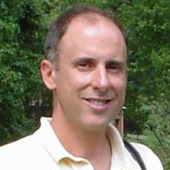
Patrick Megonigal
Associate Director of Research, Smithsonian Environmental Research Center, Smithsonian Institution
Less ![]()
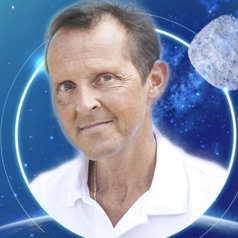
Patrick Michel
Astrophysicien, Directeur de Recherche au CNRS, Responsable Scientifique de la mission spatiale Hera (ESA), Observatoire de la Côte d’Azur, Laboratoire Lagrange, Université Côte d’Azur
Dr. Patrick Michel est le responsable scientifique de la mission Hera de l’ESA et de l’équipe Théories et Observations en Planétologie (TOP) du laboratoire Lagrange/CNRS de l’Observatoire de la Côte d’Azur à Nice, France. Avec plus de 200 publications dans des journaux internationaux à comité de lecture, il est Directeur de Recherche au CNRS, et a le rôle de coordinateur du projet NEO-MAPP financé par le programme H2020 de l’Union Européenne. Il dirige ou contribue fortement à des projets de recherches et des missions spatiales consacrés aux astéroïdes et à la défense planétaire, tels que OSIRIS-REx (NASA), Hayabusa2 et MMX (JAXA). Il co-dirige la coopération AIDA qui comprend les scientifiques impliqués à la fois dans les missions DART (NASA) et Hera (ESA) ; il est Président du Groupe de Travail Géocroiseurs de l’Union Astronomique Internationale (UAI) et membre du comité de pilotage du réseau international d’alerte des astéroïdes (IAWN). Ces recherches se consacrent au processus de collision entre astéroïdes, à l’origine et l’évolution dynamique des géocroiseurs, aux propriétés physiques des astéroïdes et à leur réponse aux impacts, aux effets de marée, aux vibrations et aux modifications de leur taux de rotation. Il a reçu la Médaille d’Argent de la NASA, le Prix international Paolo Farinella 2013 pour sa contribution au processus de collision, la Médaille Carl Sagan de la Division Américaine de Sciences Planétaires pour son excellence dans sa communication avec le grand public et le Prix Jeune Chercheur 2006 de la Société Française d’Astronomie et d’Astrophysique. L’astéroïde 7156 Patrickmichel lui a été attribué par l’UAI.
Less ![]()

Patrick Mitchell
Assistant Professor of Microbiology, School of Medicine, University of Washington
Less ![]()
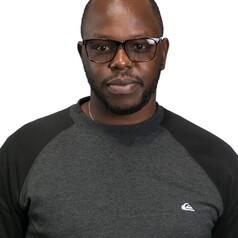
Patrick Nyamaruze
Post-doctoral research fellow, University of KwaZulu-Natal
Patrick Nyamaruze recently earned his PhD from the University of KwaZulu Natal. He is currently completing a post-doctoral fellowship at HEARD. His areas of specialization include adolescent sexual and reproductive health, gender and sexual diversity, mental health and health promotion research.
Less ![]()
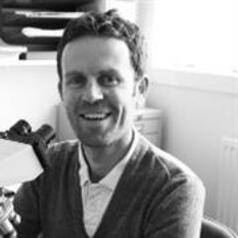
Patrick Quinn
Principal Research Fellow in Archeology, UCL
Patrick Sean Quinn is Principal Research Fellow in Ceramic Petrography at University College London Institute of Archaeology. He is one of the world’s leading experts on the scientific analysis of ancient ceramics and has written several textbooks on this topic. He is also a long-time skateboarder and is interested in the heritage of late twentieth-century cultural phenomena.
Less ![]()

Patrick Richards
PhD Candidate, College of Education, University of Saskatchewan
I am a life-long educator currently completing my PhD in Education. My academic expertise has covered civic issues in education such as the attempts to provide basic education globally and democratic possibilities in school systems. Specifically, my dissertation explores educational policy in Saskatchewan and the role of various groups in its development. As an educator, I have taught history and Indigenous studies at the secondary and post-secondary levels.
Less ![]()
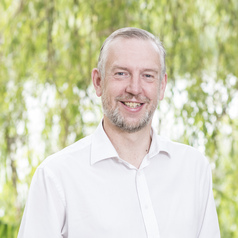
Patrick Sears
Senior Lecturer in Chemistry and Forensic Analysis, University of Surrey
Dr Patrick Sears is a Senior Lecturer of Chemistry and Forensic analysis at the University of Surrey in the School of Chemistry and Chemical Engineering. He teaches forensic analysis across all years and supervises placements, final year projects and PhD students. His research expertise and background include developing analytical chemistry solutions for complex problems and understanding how analytical systems can be broken down to improve precision and accuracy. He collaborates with a number of companies including AstraZeneca, LGC and Waters. Having joined the university in 2018, Patrick previously worked at the defence science and technology laboratory (DSTL).
Less ![]()
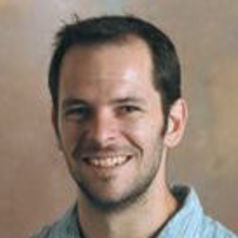
Patrick Shafto
I am Henry Rutgers Term Chair in Data Science and Associate Professor in the Department of Mathematics and Computer Science at Rutgers - Newark. I am also affiliated with the Institute for Data Science, Learning and Applications (I-DSLA) and have appointments in Psychology, Rutgers Business School, and the Center for Molecular and Behavioral Neuroscience (CMBN) at Rutgers.
I lead the CoDaS lab. The goal of my research is to bridge Cognitive Science and Data Science by understanding human perception and cognition and developing more cognitively natural machine learning and data science tools.
Less ![]()

Patrick Ssebugere
Senior lecturer, Department of Chemistry, Makerere University
Patrick Ssebugere is a scientist in the Department of Chemistry at Makerere University in Uganda (East Africa). He received his DrSc in green chemical technology from Lappeenranta University of Technology, Finland, in 2015. In 2019, he undertook postdoctoral studies at Helmholtz Zentrum München, German Research Center for Environmental Health in Germany. In 2022, he was an Alexander von Humboldt guest scientist at Helmholtz Centre for Environmental Research – UFZ in Leipzig, Germany.
Less ![]()
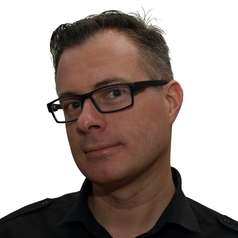
Patrick Stokes
I'm a philosopher at Deakin University, and have previously held research fellowships in the UK (I'm an honorary Research Fellow at the University of Hertfordshire), Denmark and the US.
My areas of research include personal identity, philosophy of death and remembrance, 19th and 20th century European philosophy (especially the work of Søren Kierkegaard) and moral psychology.
As well as The Conversation, I'm a regular contributor to New Philosopher and pop up from time to time on The Drum, 774 Melbourne, 3RRR, Radio National, The Age, and other places.
Less ![]()
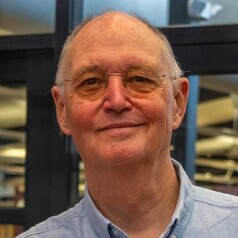
Patrick Sullivan1
Professor, University of Notre Dame Australia
I am a political anthropologist whose work for Aboriginal organisations since the early 1980s involves practical research and advice on issues of land use and distribution, community control of community development, and governance institutions at the local and regional levels. For two separate periods I was the Senior Anthropologist for the Kimberley Land Council, formulating anthropological and policy advice on local, national and international projects, as well as native title cases. From 2002 to 2012 I was a Research Fellow, and Senior Research Fellow, in Indigenous Regional Organisation, Governance and Public Policy at the Australian Institute of Aboriginal and Torres Strait Islander Studies. I concentrated my research on public policy approaches to Indigenous affairs. I have authored numerous scholarly articles and practical reports, and the book Belonging Together: Dealing with the Politics of Disenchantment in Australian Indigenous Policy (Aboriginal Studies Press, Canberra 2011). I am currently an Honorary Professor at the Crawford School for Public Policy (ANU), and a Professor at the Nulungu Research Institute, University of Notre Dame Australia, Broome. I led the ARC-funded project Reciprocal Accountability and Public Value in Aboriginal Organisations.
Less ![]()
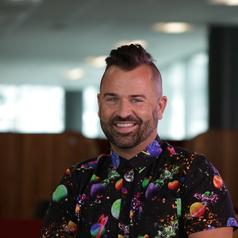
Patrick Usmar
Lecturer in Critical Media Literacies, Auckland University of Technology
Moving from making media messages to researching and teaching how best to understand them, Patrick is passionate about continually improving media literacy skills in adults and young people alike. Patrick has worked in media and communications since 1998 and has been a teaching academic at AUT University since 2013. In his early career he worked as a media planner buyer, keeping a close eye on the media landscape, changes in audience attitudes and the language of communications. As his career matured, he took these skills into innovative communication areas such as television production and public relations. His doctoral research investigates how media literacy skills empower young people to understand the media as it relates to their experience of the social world— especially those issues related to identity, power, gender, class and race inequities.
Less ![]()

Patrick Wright
Associate Lecturer in Arts and Humanities, Open University, The Open University
Patrick Wright received his PhD in English from the University of Manchester in 2007. He also holds two MAs, in English and in Creative Writing, from the same institution.
His AHRC-funded doctoral thesis focused on the sublime within a broader discourse on the sacred, making use of feminist and psychoanalytic theory. This project was supervised by Professor Terry Eagleton and Dr Anke Bernau.
He has been shortlisted for the Bridport Prize, and he has a pamphlet, Nullaby, published by Eyewear. His full debut collection, Shadows on the Ceiling, will be published in 2020 by the same publisher.
His poems have been published in several anthologies and magazines, most recently Agenda, The Reader, Iota, The High Window, and Wasafiri.
He is studying towards a second PhD in Creative Writing, focusing on innovative ekphrastic responses to modern art, supervised by Siobhan Campbell and Jane Yeh.
Research interests include literature from 1800 to the present, modern and contemporary poetry, art history, place writing, and issues of genre and translation.
He teaches on A111, A105, A233, and A335, and is a Fellow of the Higher Education Academy.
He has also taught English, at the University of Manchester and the University of Salford, and Art History and Visual Culture, at the Manchester Metropolitan University.
He is especially interested to hear from students looking to pursue literature or creative writing routes.
Email address: [email protected]
Less ![]()
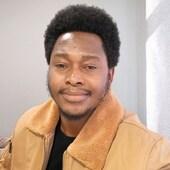
Patrick Effiong Ben
Doctoral Researcher in Applied Ethics and African Philosophy, University of Manchester
Less ![]()

Patrick F Walsh
Professor Intelligence and Security Studies, Charles Sturt University
Professor Patrick F Walsh is a Professor, Intelligence and Security studies at the Australian Graduate School of Policing and Security, Charles Sturt University, Australia. He consults to government and his research focuses on a range of intelligence capability issues including governance, leadership, intelligence and ethics, biosecurity, health security and cyber. He is the author of Intelligence and Intelligence Analysis, Routledge, UK 2011; Intelligence, Biosecurity and Bioterrorism, Palgrave Macmillan, UK, 2018; and Intelligence Leadership and Governance. Building Effective Intelligence Communities in the 21st Century, Routledge, 2020
Less ![]()
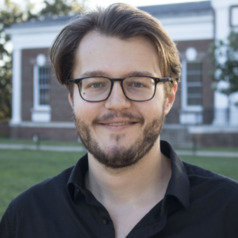
Patrick I. Hancock
Postdoctoral fellow, University of Virginia
Patrick I. Hancock is a Postdoctoral Fellow at the University of Virginia School of Engineering and Applied Sciences. His research focuses on developing collaborative and behaviorally informed engineering practices that facilitate processes and generate outcomes that meet community definitions of social justice. Patrick’s work has appeared in Nature Sustainability, American Psychologist and iScience.
Less ![]()
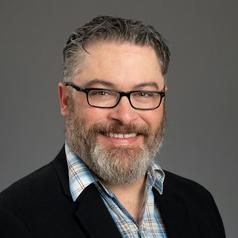
Patrick R. Lowenthal
Professor of Educational Technology, Boise State University
Patrick R. Lowenthal is a Professor of Educational Technology at Boise State University. He specializes in designing and developing online learning environments. His research focuses on how people communicate using emerging technologies—with a specific focus on issues of presence, identity, and community--in online learning environments.
Less ![]()
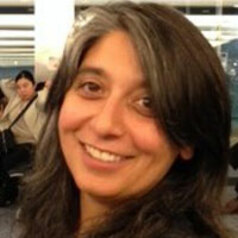
Patrizia Gentile
Professor, Sexuality Studies/Human Rights & Social Justice, Carleton University
Research Interests: Cultural/gender history; history of sexuality; history and theory of the body; beauty contests; national security; queer theory
Cross-appointments: Institute of Interdisciplinary Studies/Feminist Institute of Social Transformation
Patrizia Gentile, Queen of the Maple Leaf: Beauty Contests and Settler Femininity (UBC Press,October 2020).
(Queen of the Maple of Leaf is nominated for the Canadian Historical Association Best Scholarly Book in Canadian History Prize 2021.)
Gary Kinsman and Patrizia Gentile. The Canadian War on Queers: National Security as Sexual Regulation. (Vancouver: University of British Columbia Press, 2010).
Patrizia Gentile, Gary Kinsman, and L.Pauline Rankin, eds. We Still Demand!: Redefining Resistance in Sex and Gender Struggles. (Vancouver: University of British Columbia Press, 2016)
Patrizia Gentile and Jane Nicholas, eds. Contesting Bodies and Nation in Canadian History (Toronto: University of Toronto Press, 2014)
Less ![]()
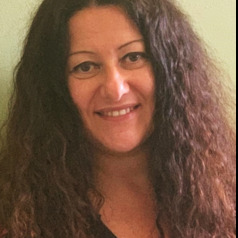
Patrizia Quattrocchi
Professor of Cultural Anthropology, Università degli Studi di Udine
Patrizia Quattrocchi is a Professor in cultural and medical anthropology at the University of Udine, Italy. Her research interests include reproductive health and policies, with a particular focus on the differing responses to the overmedicalisation of birth, depending on the context. She conducted ethnographic research on indigenous Lenca midwifery in Honduras (1998) and in Mayan communities in Mexico (2000–2009), out-of-hospital birth in Italy, Spain, and the Netherlands (2010–2015), and obstetric violence in Argentina (2016–2018). She was twice awarded a Marie Sklodowska Curie Grant by the European Union (7FP and Horizon2020). As a result of the second project, titled “Obstetric violence. A new goal for research, policies and human rights on childbirth”, she is the coordinator of the Platform of Obstetric Violence, and continues her research on the topic in Latin America and in Europe. A new project on obstetric violence has recently been funded by the Marie Sklodowska Curie Action programme (HORIZON-MSCA-2022-Staff Exchange, 2024-2027). As the coordinator of the project (International Platform on Obstetric Violence-IPOV-RESPECTFULCARE), Professor Quattrocchi led a large international partnership made up of 19 institutions from 6 European countries and 3 Latin American countries, and a team of 40 experts, including researchers, professors, health professionals and members of civil society organisations (https://respectfulcare.eu ). She is also the author of the study “Obstetric violence in the European Union: Situational analysis and policy recommendations”, funded by the European Commission (2024).
Less ![]()
- Market Data























